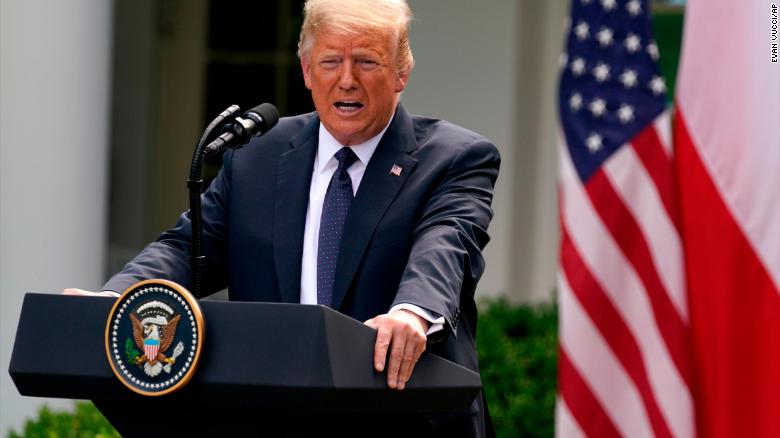
America down. The presidential election is approaching in a heated political climate.
It’s Nov. 4, the day after the 59th U.S. presidential election. Trump, defeated, does not accept the outcome. He barricades himself in the Oval Office. He does not intend on leaving his position. Could it happen? Joe Biden, in an interview with Trevor Noah, says yes.
Trump could try to “steal” the election — this is Biden’s “greatest concern,” and in an extreme case he may even go as far as to contest the election result, refusing to leave office. But, in such an event, Biden is “absolutely convinced” that the military would intervene. They would escort him out of the White House themselves.
The mere fact that Trump’s Democratic competitor seriously contemplates such a scenario gives a measure of the level of tension in which we enter the final deciding stage of the election showdown. Biden’s words predict 142 intense days, from now until Tuesday, Nov. 3. Trump will be on the front lines, not backing off in the face of growing protests, which are now also on his own side, but rather poking the fire, especially when it comes to racism, and equipping his experienced repertoire of fraudulent lies, falsifications and “alternative facts.”
Trump has good reason, from his perspective, to push on the front lines of the battle to the bitter end. The first reason, the most obvious, is that Trump only knows how to be Trump. Every time he tried to soften his message and tone, it did not work. In the final stage of his race against Hillary Clinton, friends and donors advised him to tone it down, to be “presidential,” fearing that his misogynistic impression would turn into a boomerang. He tried, and the authenticity of the bully, who liked to listen to Steve Bannon, was evident.
Go with your gut, be Trump, his strategist friend advised, and he won. The second reason is in the belief that continuous extremism consolidates and motivates his supporters, his base. On the opposing side though, it can produce discrepancies between those who demand balanced answers and those who fear that harsh reactions can scare away moderate voters after all, with the consequence of weakening Biden’s candidacy and the prospect of winning both houses of Congress.
Currently, Trump’s strategy is proving to be weak, while recent polls confirm a wide gap — eight points — in favor of Biden. This is a trend that, by historical precedent, at this stage of the election campaign, clearly points to defeat in the election. Moreover, 74% of Americans support the protests, of which 54% are Republicans, with 57% of Americans who understand the anger that led to this revolt, even in its most severe forms.
The “silent” majority that supports him or would still vote for him is not in line with the escalation that Trump is giving to his campaign. He fears that the divide in the country, which he fueled intentionally, would not stop with his reelection, but would open the door to permanent civil unrest, and not just racially charged. Important pieces of this world have blatantly been uncovered, and they do not intend to be pulled into the vortex.
It’s not a coincidence that Biden went as far as to forecast a military intervention in the extreme case of a defeat that Trump does not accept. The crisis of the president’s relations with top military leaders has been evident for some time, and not necessarily for reasons that picture generals dressed as doves and the president as a hawk.
If anything, it is the opposite. As commander in chief, Trump has never been taken seriously by military professionals for his lack of restraint, unpredictability and his evident isolationist tendency. But his inconsistencies would have stayed in the background if Trump had not tried to — and incredibly continues to do so — involve the armed forces in the suppression of the protests, an attempt that is considered outrageous to the military’s tradition of non-involvement in internal affairs.
An open challenge to military leadership who reacted decisively to the self-criticism of the number of generals such as Mike Milley. Milley, in full uniform, accompanied Trump on his obscene walk from the White House to St. John’s Church, which was followed by a huge scandal from all of his general colleagues and ex-colleagues. Public self-criticism could be followed by his dismissal or resignation, which would increase the extent of the crisis. A major, unprecedented political event.
An event that symbolizes the battle in which America finds itself, between a country that “we are trying to leave behind, and that Trump raises,”* “the idea that American is a white nation,” as Eddie Glaude, director of the department of African American studies at Princeton, notes, and an America that moves toward the future.
*Editor’s note: Although accurately translated, the quoted remark could not be independently sourced.

Leave a Reply
You must be logged in to post a comment.